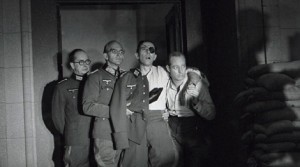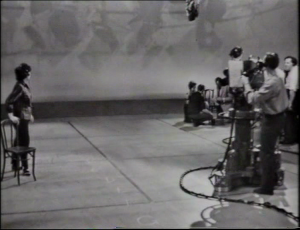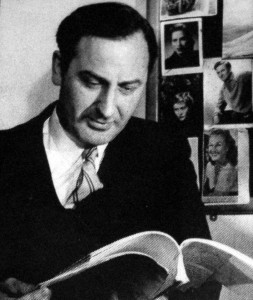by OLIVER WAKE
The Wednesday Play Writer: Roger Manvell; Adapted from (novel) Roger Manvell and Heinrich Fraenkel; Producer: Peter Luke; Director: Rudolph Cartier
Broadcast in late 1964, The July Plot is an interesting example of a television play made during a formative moment in the history of British television drama.1 It was in production as the BBC’s drama strategy was being reformulated, resulting in the shake-up of the Corporation’s drama anthology output and the creation of the genre-defining The Wednesday Play (1964-70), as part of which it was ultimately transmitted. The July Plot is also an early example of drama documentary based around major events from within living memory, and a rare instance of its particular subject being tackled for a British audience. With this article, we aim to give an insight into the play’s production and an overview of its effect upon its audience.
The Wednesday Play: ‘The July Plot’, BBC1, tx. 9 December 1964. ↩




